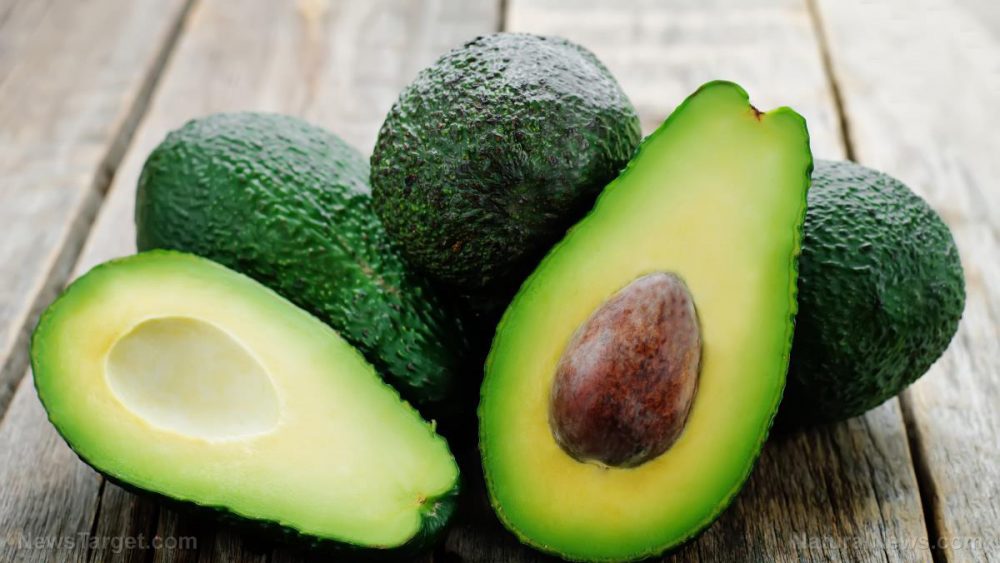
Advertisement
The avocado is a superfood with a rare mix of healthy fats and fibers that nourish and support the body. As long as people don’t overeat the fruit, adding avocado to their diets will help regulate their appetite, thus contributing to weight loss.
Avocados go well with many dishes and can be used to make a healthy snack. It also fits into breakfast, lunch, and dinner.
A new study from the Illinois Institute of Technology (IIT) examined the health benefits of avocado on obese or overweight people. It showed that volunteers who consumed the fruit together with their meals felt less hungry after several hours than participants who ate a low-fat, high-carbohydrate meal.
IIT researcher Dr. Britt Burton-Freeman served as the senior author of the study, which was published in the journal Nutrients. Their efforts were sponsored by the Hass Avocado Board (HAB). (Related: Crunchy, tangy and good for your gut: 4 Health benefits of pickles, a fermented food.)
How does avocado affect satiety after meals?
The IIT researchers evaluated the effects of avocado on satiety. Satiety is the feeling of fullness after eating that subsequently reduces a person’s appetite.
The study involved 31 volunteers who were obese or overweight. During breakfast, the participants ate a meal that consisted of the following foods:
- A bagel sandwich (with or without an avocado)
- Fresh honeydew melon
- Oatmeal
- Lemonade-flavored drink
The participants took the breakfast meal on three separate occasions with slight differences.
The control meal contained lots of carbohydrates but was low in fat. Meanwhile, the two test meals included either half an avocado or an entire fruit.
The total calorie count remained the same for each meal. However, the test meals had triple the amount of fat but only two-thirds the amount of carbohydrates in the control meal.
After each meal, the volunteers reported their subjective feelings of fullness, hunger, appetite, the amount of food they wanted to eat, and their satisfaction with the meal. They provided feedback at regular intervals over a 6-hour period.
The participants also provided blood samples for lab tests that sought to determine how avocado consumption affects satiety.
If avocados aren’t to your taste, try nuts
The participants experienced a higher satisfaction after eating meals that contained either half an avocado or a whole avocado. Those who ate the meal with a whole avocado also felt less hungry after six hours.
Lab tests showed that insulin performed its role of mediating satiety after the low-fat, high-carb meal (control). However, the IIT researchers also found a strong relationship between the gut hormone peptide YY (PYY) and subjective satiety after eating a meal containing a whole avocado.
The researchers concluded that the biological signaling that leads to satiety might have significant implications on health and nutrition.
“Based on earlier work, I hypothesized that the fat-fiber combination of avocado would impart an enhanced satiety response,” Burton-Freeman said. “The responses on the different satiety variables was surprising and helps us understand [or] think about how the fat and fiber may work to enhance satiety, even later, in the post-meal period.”
Burton-Freeman also explained that, in the past, fats took most of the blame for obesity. But recently, carbohydrates have started to draw attention because of how they affect the regulation of appetite and weight.
For people who don’t like avocado but want to experience its health benefits, other foods may also provide the same combination of good fats and healthy fiber. One example of such foods is nuts, particularly the selenium-rich superfood Brazil nuts.
“Nuts are another whole food that delivers healthy fat and fibers,” Burton-Freeman shared. “Fats and fibers can be paired in formulated products, but avocados and nuts are examples of plant foods that contain both inherently.”
Sources include:
Advertisements







